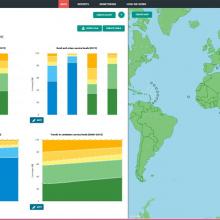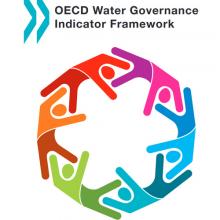
OECD Water Governance Indicator Framework
The Water Governance Indicator Framework is conceived as a voluntary self-assessment tool to assess the state of play of water governance policy frameworks (what), institutions (who) and instruments (how), and their needed improvements over time. It is a tool supporting the implementation of the OECD Principles on Water Governance, adopted by the OECD Regional Development Committee in 2015. It is intended to be applicable across governance scales (local, basin, national, etc.) and water functions (water resources management, water services provisioning and water disaster risk reduction). It is grounded on a sound bottom-up and multi-stakeholder approach rather than a reporting, monitoring or benchmarking perspective, since governance responses to common water challenges are highly contextual and place-based.
The Water Governance Indicator Framework is composed of a Traffic light system of 36 water governance indicators (input and process) and a Checklist containing 100+questions on water governance. It is complemented by an Action Plan for discussion on future improvements of the water governance system in the short, medium and long run.
Governments and other stakeholders are invited to make the most of the proposed indicator framework for collectively identifying policies and strategies that can better address water challenges. Although much still remains to be done to propose a comprehensive framework for assessing water governance, the tools herein provided are a first concrete achievement that can significantly contribute to the development of better water policies for better lives.
Reviews
There are no reviews yet.
Be the first to review " OECD Water Governance Indicator Framework "
Add a review
Implementation reports
Add an implementation report
Other tools that could interest you

JMP Global Database


